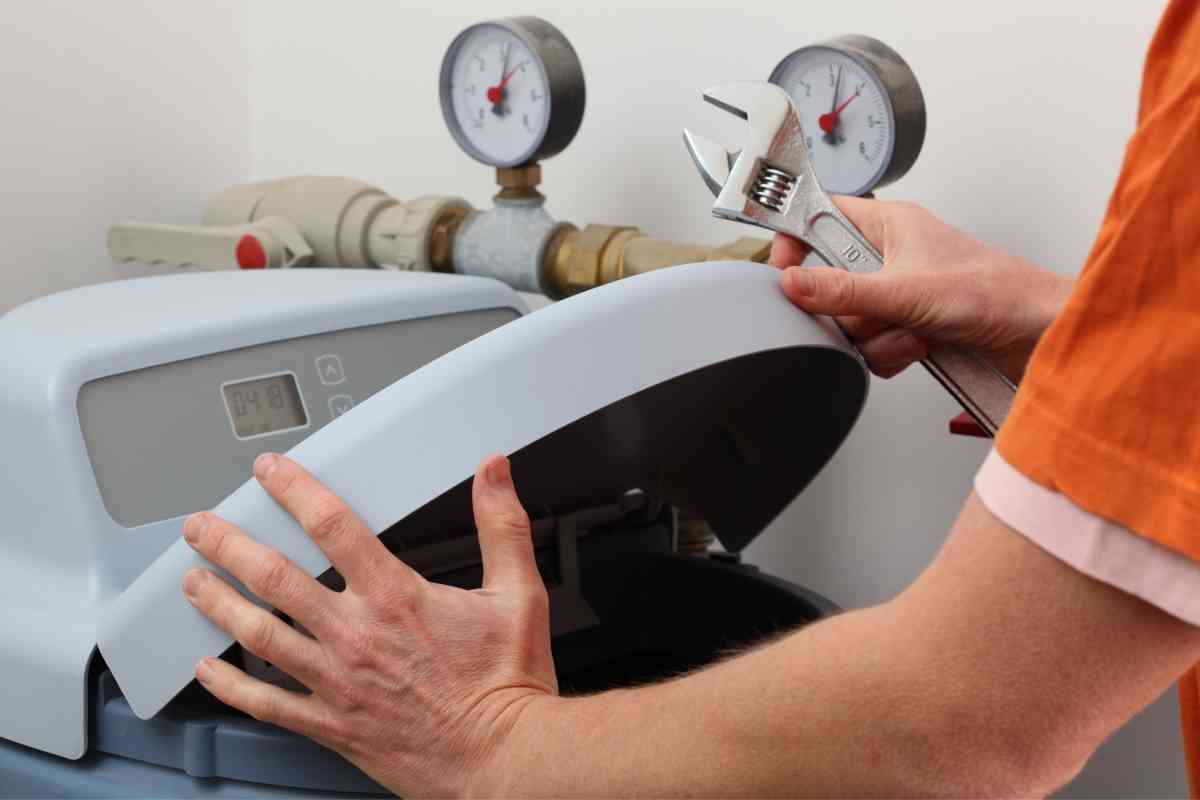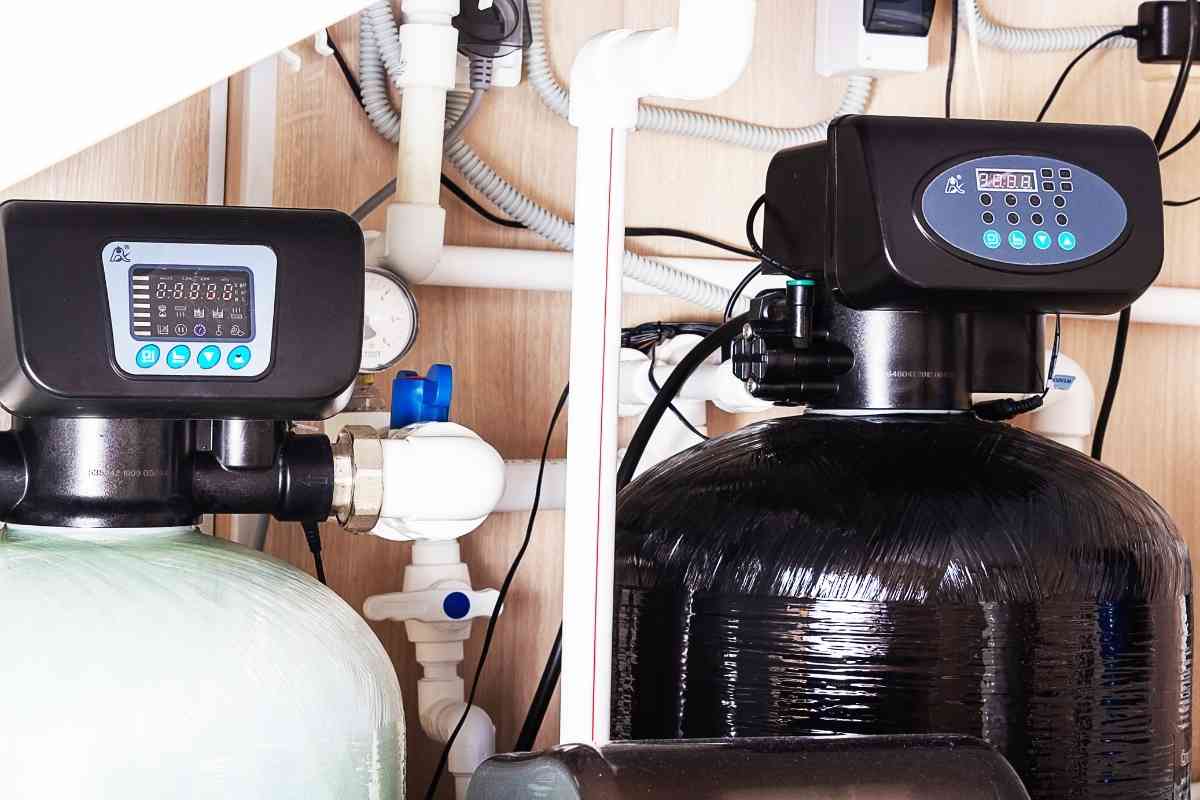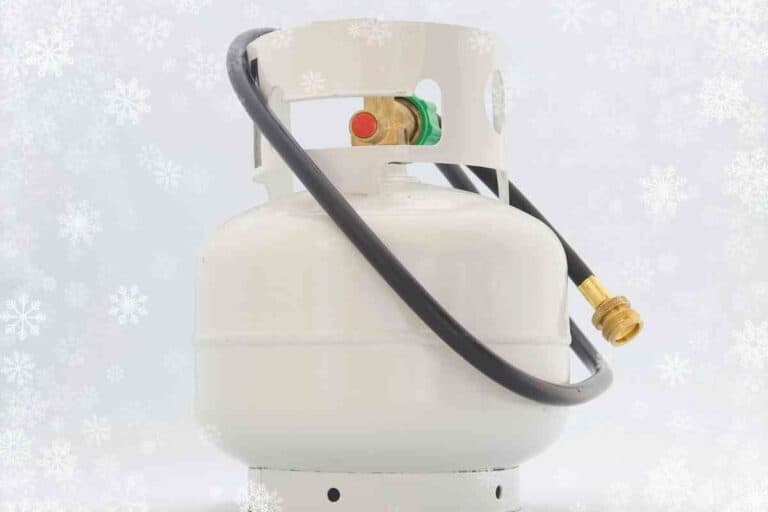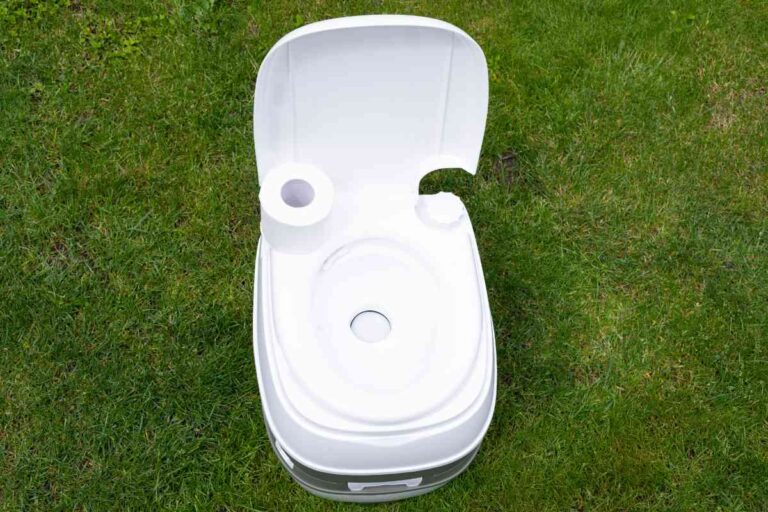Magnetic Water Softener: Do They Work (Pros Vs Cons)
For a long time, getting better water required a saltwater softener. The question is, do magnetic water softeners work as well as regular ones?
Water softeners are used to “soften” water that can be skin harshening and have too many minerals. While magnetic water softeners are now available, you could use some clarification on their pros and cons before getting one.

Do magnetic water softeners work?
Magnetic water softeners are a recent development in water softening technology. They offer unique potential advantages, like having less maintenance, less salt, and a lower price. The issue is they don’t actually soften your water, even though some claim to do so.
It’s time to get a good look at the science behind magnetic water softeners. We can evaluate what these devices truly do, which will help you get a better idea of what kind of water softener to get for your home or RV.
We’ve helped homeowners make many decisions for their homes. We also rely on real evidence that a system – especially one that changes your water, really works before recommending it. Let’s take a look at the pros, cons, and claims of magnetic water softeners’ abilities.
Magnetic Water Softeners and Salt Water Softeners: What’s the Difference?
A magnetic water softener attempts to use a different method to soften your water. Rather than relying on a chemical process from a salt mixture, the magnetic water softener uses neodymium magnets on either side of the pipe bringing water into the tank.
With that said, let’s get into the pros and cons as compared to a regular saltwater softener:
Pros:
Magnetic Water Softeners make cleanup easier
One of the biggest claims made by magnetic water softeners is that the magnets move minerals in a way that makes the resulting deposits easier to clean.
Anyone who has spent time in the shower, bathtub, or sinks trying to use products like CLR to remove water scum from the walls might appreciate hearing this.
While we’ll cover some of the harder claims of magnetic water softeners later, this one is probably true.
Magnetic water softeners do make the two main culprits of hard water, calcite, and aragonite, into slightly different shapes. Longer, less organized electronics are indeed easier to remove than hardened deposits with smaller beads.
What does this mean? A magnetic water softener should have less of the gross sediment that can cause clouds in your hot water.
The water should also be easier to clean off when you are detailing your shower or flushing minerals out of your hot water heater.
Magnetic Water Softeners are easier to maintain
This actually might be true. A magnetic water softener doesn’t need much of anything besides being flushed once in a while.
A saltwater softener needs refills of sale, as the chemical process of softening water does wear the salt down.
Less salt in your water
Do you taste more salt in your water when using a saltwater softener? Potentially. A magnetic water softener uses no salt, so the taste shouldn’t change.
People who are accustomed to saltwater softeners might find the taste a bit different at first.
Some people who have a sodium restricted diet due to high blood pressure might find this helpful. While the amount of sales is negligible, this might matter – especially if they don’t know about the problem.
Magnetic water softeners can help your plumbing
The minerals from regular, unsoftened water can be bad news for your pipes, especially if you live in a rocky area.
While saltwater softeners can help “descale” too, magnetic water softeners have that as the main feature.
While much of the evidence is not scientific, magnetic water softeners have at least some impact on the presence of scale within a home’s plumbing.
Some parts of the country, especially in the southwest, might find it to be a good benefit. These people should also consider that salt-based water softeners offer more benefits, too.

Cons:
Do magnetic water softeners actually soften water?
Actual water softening is one of the more misleading claims of a magnetic water softener.
Sure, the water softener is equipped with magnets that seem to make the metals inside less organized, but there is little evidence that water actually becomes softer after passing through.
People with sensitive skin – or who otherwise don’t like skin won’t like hearing this news.
The water coming through your shower head and tap will be less likely to stick to the plumbing, but won’t necessarily help your skin, dishes, or anything else impacted by hard water.
If you like taking hot showers, you should expect that the magnetic water softener won’t do much of anything to reduce the harsh effects of mineralized water on your skin because the minerals are still present.
Magnetic water softeners’ price
A magnetic water softener can cost around $600 though sometimes less. This is actually cheaper than a saltwater softener, except that without really softening water, some potential buyers might question the investment.
Is installing a $600 “water softener” worth the price of having less salt in your diet and an easier to clean tank and shower?
Whether you live in a regular home or a mobile home, a saltwater softener might be a better investment.
Potentially misleading claims
We will be very clear here: Some, but not all, magnetic water softener makers claim that their products truly remove minerals from water.
A magnetic water softener can then be presented as a cheap, low-maintenance alternative to traditional water softeners that don’t require a salt delivery.
The issue here is that there is no evidence that magnetic water softeners fulfill that claim. Evidence should be easy to make! Measure how much salt is in the water before it gets to the softener and how much it has come out.
Many plumbing and water companies have also helped residents remove their magnetic water softener after discovering that it doesn’t perform as claimed. Thankfully, compared to a regular water softener, this is relatively inexpensive.
Magnets are complicated
Magnets are much more complicated than salt. The salts and other chemicals used in a saltwater softener have been around for decades and are proven to remove harsh minerals from your water.
Magnets come in a huge variety of powers, and without much proof that magnets are doing much to your water, it’s tough to know how powerful you’ll need to have an actual impact on your water.
What should I do about magnetic vs salt water softeners?
We would suggest waiting for evidence that magnetic water “softeners” actually do something. It’s possible that in the long run, magnets might hold a key to reducing salt consumption and helping to plumb.
At the moment though, scientific evidence of their actual benefits is quite sparse. While they are cheaper, cheaper isn’t always better when it comes to your home and water products.

![Can I Live In A Yurt On My Own Land? [Answered!]](https://freedomresidence.com/wp-content/uploads/2022/05/Can-You-Live-in-a-Yurt-On-Your-Own-Land-1-768x512.jpg)





I am unaware of any published, scientific, random, supervised double-blind test of the effects of static or variable magnetic fields that have changed water in any way. Without this verification any improvement claim is completely worthless. Therefore, I recommend that you mentioned this lack of absolute proof in any future article about this subject. The same can be said about the benefits of hexagon water, Pi water or similar claims.